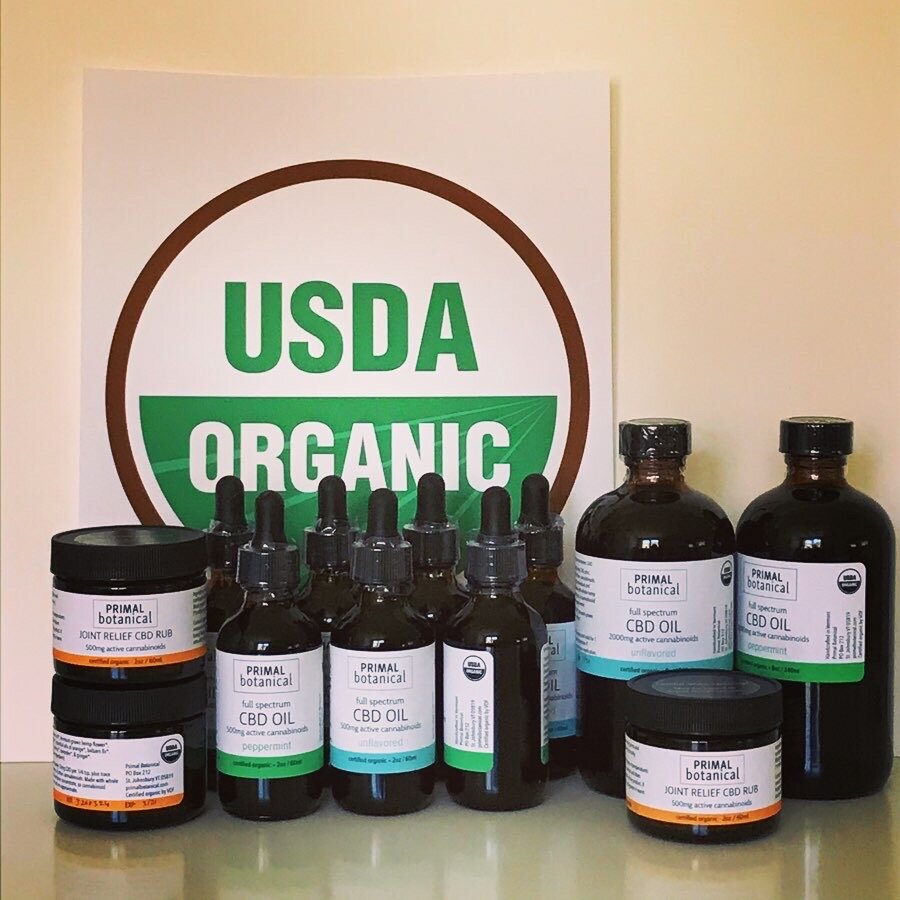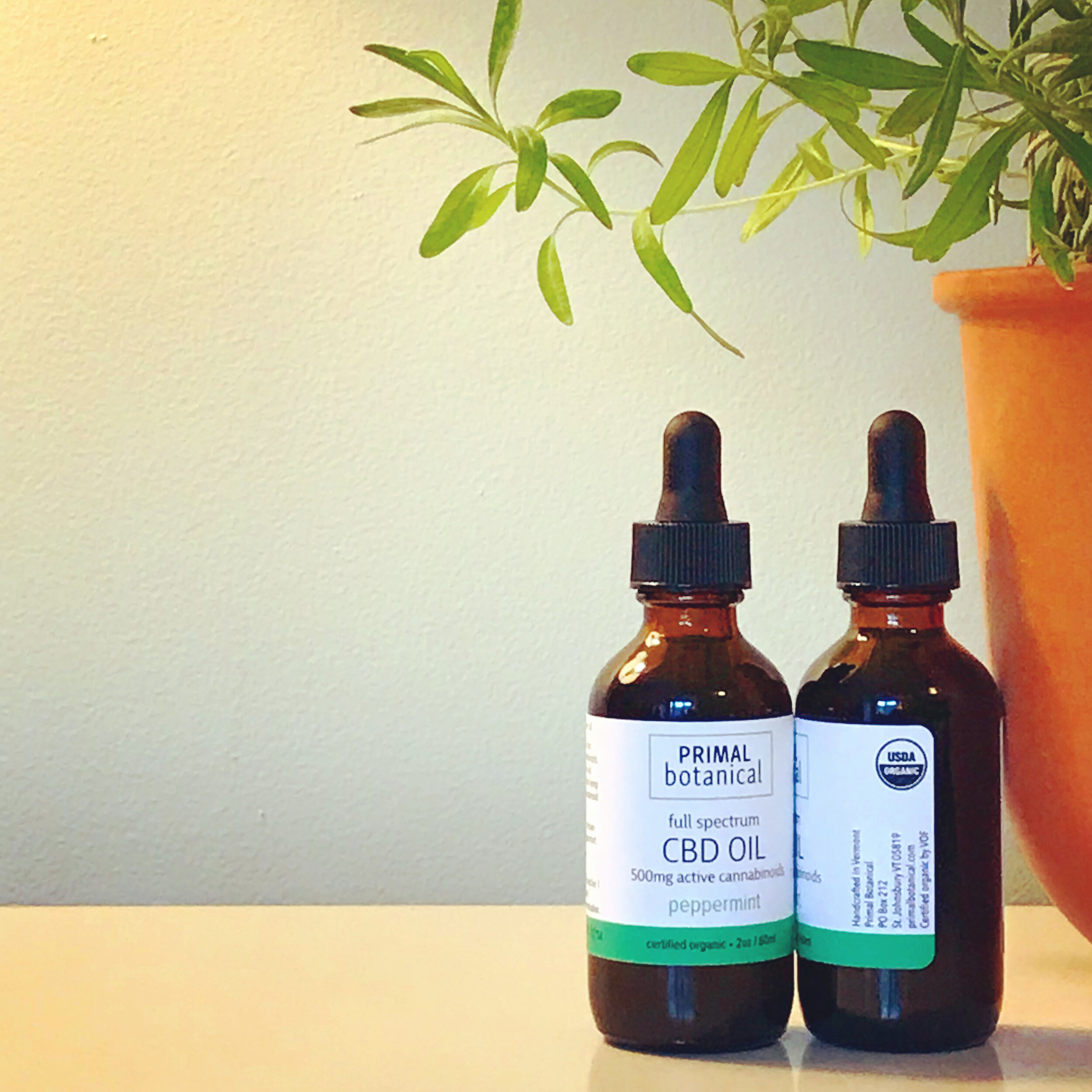Primal Botanical is now certified organic!
I am thrilled and proud to announce that Primal Botanical oils and rubs are now certified organic! It has been a long and arduous road, with many, many phone calls and emails, side detours to source new suppliers, and mountains of paperwork, but we did it! Our products have always been made with certified organic coconut and MCT oils, and our hemp has been certified organic since fall of 2019 (before that it was grown strictly according to organic guidelines, but was not certified), but a few of the essential oils in our blends were not organic. We have switched over to 100% certified organic ingredients and will be transitioning over to our new labels over the next few weeks.
Why organic? Are certified organic products better than their non-organic counterparts? No, not necessarily. When it comes o food, I nearly always prioritize local over organic. Many small farmers use organic methods, but don’t pursue organic certification. It’s expensive and time-consuming to get certification, and farmers often operate on tight budgets. I would much rather buy a head of non-organic lettuce from a guy at my local farmers market who can tell me about his growing practices than a bag of lettuce with the USDA organic seal from a massive operation in California.
So…. why organic??? If a customer meets me at my farmers market booth, they can immediately see my passion and commitment to the quality of my product. I can describe my ingredients, the growing practices of my hemp farmer, and the way I manufacture my products. For products on a store shelf, however, none of this is apparent. My labels are so small that it’s challenging to get all the text I want to fit, let alone trying to add information about how the hemp is grown.
Growing practices are especially important for hemp. Hemp is a bioaccumulator, which means that it pulls constituents out of the soil into the plant. This includes pesticides, herbicides, and heavy metals such as lead and cadmium. If hemp is grown with pesticides or herbicides or grown in contaminated soil, the plant will be tainted with these harmful chemicals - and so will any CBD oil made from that hemp.
Like other agricultural crops, hemp can be grown cleanly and responsibly even if it is not certified organic. However, much of the CBD sold in the US is imported from China, which is the largest producer of hemp worldwide. China tends to be lax on regulations, and uses more pesticides on its crops than any other nation. It also has some of the most highly contaminated soil in the world. One report found that 70% of CBD products tested were “highly contaminated” with heavy metals, herbicides, pesticides, and other harmful compounds. To be safe, choose CBD products made with hemp grown in the US or Europe. Ask questions about the growing practices of the farm which produced the hemp. Or… choose a certified organic product.
I see the USDA organic seal as a kind of shorthand. It lets the customer know that the manufacturer cares about the quality of the product and has set up a system by which the quality is tracked and verified. It allows the customer to see at a glance that a product is likely to be clean and safe, without having to do a bunch of research. It doesn’t guarantee a better product, but it’s an easy way to identify a product which is likely to be free of pesticides, herbicides, and other harmful compounds.



